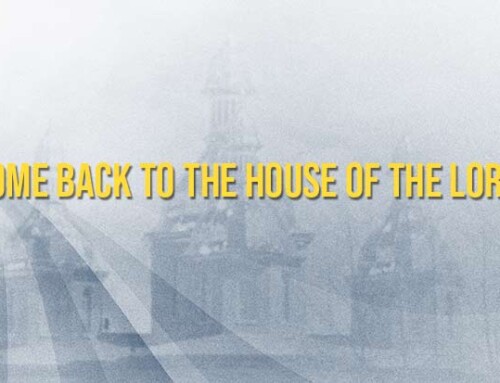I. The Role of the Clergy
In these luminous days after the Resurrection of our Lord, God and Savior Jesus Christ, the Church for our benefit gives us readings from the Acts of the Apostles. In these readings from Acts, we learn that the greatest miracle that the Lord Jesus performed through the simple fishermen he called by name was not the raising of the dead, nor was it the healing of people by shadows and touch. Rather, the greatest miracle He accomplished was that the whole known world came to believe in Him as Savior through the mere words of simple men.
Down through the centuries, the Church has carried on the mission of these simple men and has trampled over the divisions of nations and tribes by proclaiming Christ’s resurrection through Word and Sacrament.
Proclaiming the Risen Christ
In the succeeding centuries since Our Lord‘s Resurrection the proclamation of this message has been central to the Church’s mission. We would be wrong to conclude that the Church has endured plagues, pestilences, civil wars, and innumerable atrocities as a passive spectator.
Rather, it is precisely because of her active, public proclamation in Word and Sacrament of Christ’s victory over death that God’s people have been able to endure these plagues, pestilences, and calamities. Whether it is in the Books of Chronicles or in The Great Book of Needs, we can readily see the role clergy play in unifying the faithful within the consecrated space of God’s temple.
As members of the clergy, we must serve as examples to the faithful during trying times. We must lead the faithful through the challenge of fear and disease. We must lead in a way that demonstrates to all that we firmly believe that the Lord is our inheritance and that nothing in this world claims hold on us.
A call to clergy
It is on account of the root meaning of the Greek word κληρός (meaning lot or inheritance) that bishops, priests, and deacons first acquired the title “clergy,” because by their manner of living this lot of men demonstrated that the Lord was their inheritance in life, that they both possess the Lord and are possessed by the Lord (St. Jerome, Letter to Nepotian).
As clergy, we are called to provide the Lord’s flock with specific tools to increase in divine faith and love. Let us:
1. Reach out to those who have not been attending Divine Liturgy, or receiving the Sacraments, and encourage them to come back to the House of the Lord.
2. Instill in the faithful a new commitment to the Divine Liturgy and the Sacraments. And let us make every effort to increase our offering of the Divine Liturgy to that of a daily routine for those who wish to grow in spiritual resolve after the isolation of this past year.
3. Double efforts to focus preaching on addressing those malevolent spirits that have been at work exploiting the pandemic and weakening the baptismal resolve of the flock.
4. Commit to a deeper daily prayer life and to helping parishioners of all ages develop and grow in their daily prayer practice.

